Kramer by Zwilling
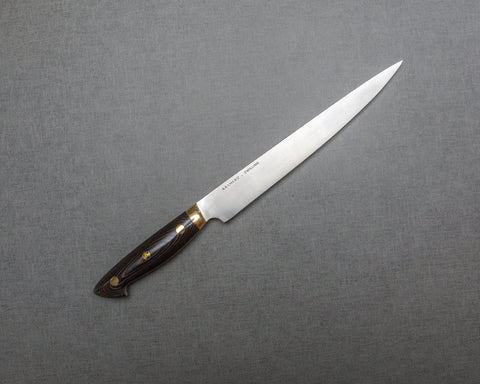
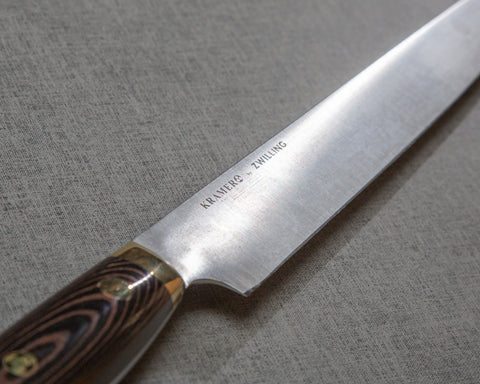
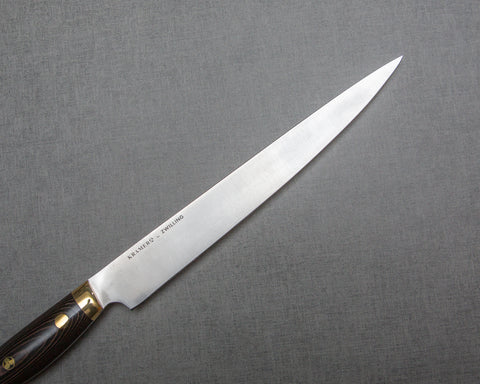
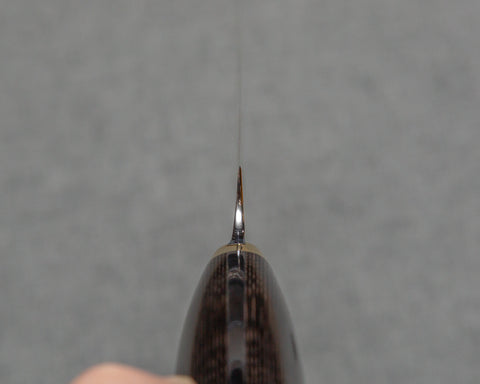
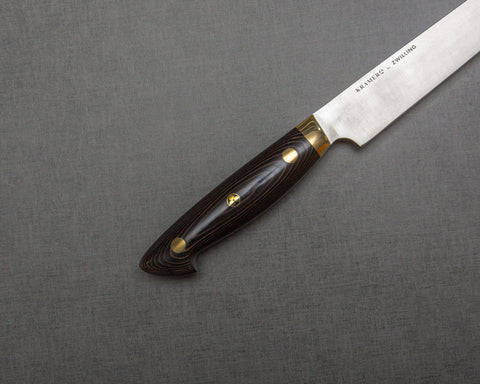
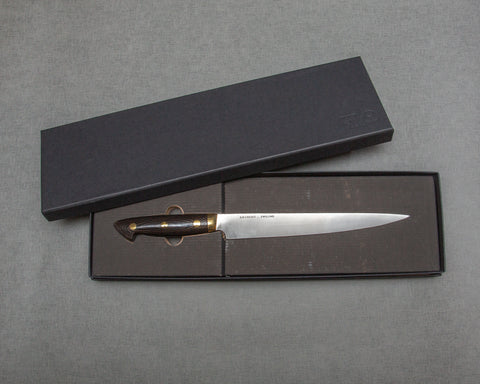
Kramer by Zwilling Carbon 2.0 Sujihiki 230mm
Pickup currently unavailable
This Carbon 2.0 Sujihiki features a Straight Carbon Steel 52100 monosteel blade that's heat-treated to 61 HRC and hand-sharpened. The blade shape was redesigned from bolster to tip, offering enhanced weight distribution for a better cutting experience. The handcrafted Grenadille wood handle is wider than a typical western styled handle to accommodate larger hands. The knife has very good fit and finish, with a mirror-finished choil, maximizing comfortability when using the knife. The bolster is made of brass, and there are mosaic pins fitted for decorative purposes.
Spec:
- Origin (Made in): Seki, Gifu Prefecture, Japan
- Brand: Kramer by Zwilling
- Model No.: 36700-233
- Knife Type: Sujihiki
- Blade
- Construction: Monosteel
- Grind: Double Edged (50/50 Grind)
- Steel Type: Straight Carbon Steel 52100
- Hardness: 61 HRC
- Hand-sharpened
- Blade Length: 230mm (9.1")
- Blade Height (at heel): 31mm
- Spine Thickness
- Above heel: 3.4mm
- Middle: 2.0mm
- Handle
- Shape: Western shaped
- Material: Grenadile Wood
- Bolster: Brass
- Length: 124mm
- Overall Length: 361mm
- Weight: 194g (6.84oz)
- Mark (Front): "Kramer by Zwilling"
- Mark (Back): The Model No. ; "52100 Carbon Steel" ; "Made in Japan"
About Bob Kramer
Bob Kramer is a renewed American bladesmith based in Bellingham, Washington. He is considered one of the greatest American knifemakers. Kramer by Zwilling knives are based on Kramer's knife profile, and made in Japan with high Japanese standards.
About Zwilling J. A. Henckels
Founded nearly three centuries ago in Germany, Zwiling J.A. Henckels has become one of the largest manufacturers of kitchen knives, scissors and kitchenware. Currently, the Zwilling Group owns two factories in Seki, Japan. Kramer by Zwilling and Miyabi knives are made in their Japanese factories.
Care:
This knife is made with high carbon steel. It is not stainless, therefore you must wipe your knife dry after each use. Patina will develop over time. Rust may develop if left in prolonged contact with water or acidic food. Use a rust eraser to clean if rusts develop. Avoid cutting into bones, frozen foods, hard fruit pits.
Cutting Surface:
Recommended cutting surface: wood, rubberized boards and high-end composites, and quality plastics such as polyethene make acceptable cutting surfaces, and will help protect and prolong knife’s edge. AVOID glass, metal, countertops, and other rigid, non-forgiving surfaces.
Sharpening:
We recommend sharpening all quality Japanese knives on whetstones, as we believe they yield the best results for your knives.
Free Shipping
Free Shipping on most orders.
30 Days Return
Return unused within 30 days for a full refund, no questions asked (terms apply).
Top Japanese Makers
All knives made in Japan by top Japanese knife makers.
About
Burrfection Store sources professionally designed sharpening products, and knives from top Japanese craftsmen.
